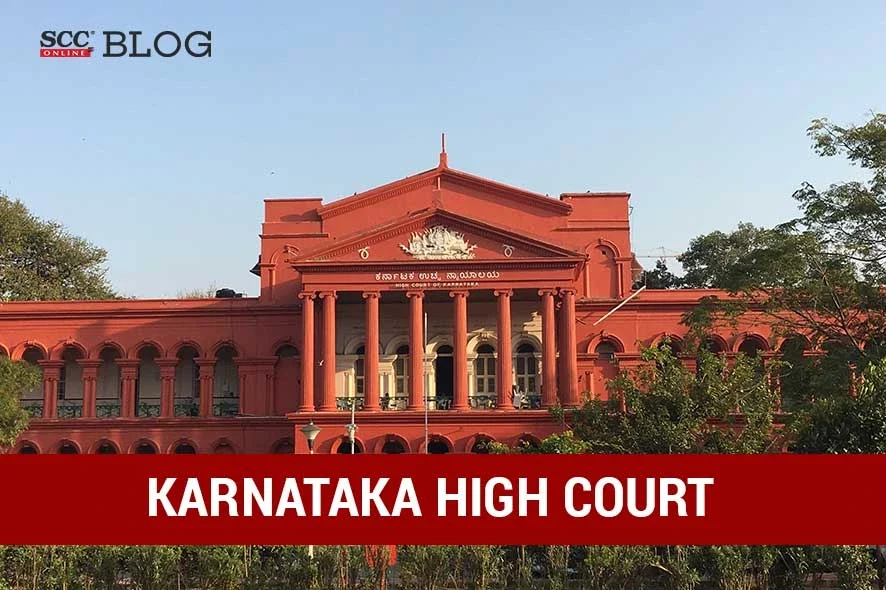Karnataka High Court: In a petition filed under Article 226 of the Constitution challenging the Notification dated 15-04-2021 issued by Government of India which imposes quality control on import of plastic into the shores of the nation to become effective from 05-01-2024, M. Nagaprasanna, J.*, opined that the Court would not tinker with a Notification which wants to bring in quality usage, by necessitating a seal of the BIS at the stage raw material itself. “If the quality emerges right from the word go till the finished product under the ‘Make in India programme’, it is only then that the country would be able to compete with others. A step towards that will not be interfered with by this Court except, that if the step towards that, depicts palpable and demonstrable arbitrariness, which is neither pleaded nor present”.
Background
Petitioner was an association of manufacturers and suppliers of high-density polyethylene, low density polyethylene and other allied products. They were importing raw material to manufacture and supply the finished goods all over the country.
Department of Chemicals (Govt. of India) imposed certain restrictions on low density polyethylene, linear low- density polyethylene and high- density polyethylene. The quality control was that the aforesaid polyethylenes should confirm to the corresponding Indian standard and shall bear the standard mark under a licence from the Bureau of Indian Standards (‘BIS’) as per Schedule I and Schedule-II of the Bureau of Indian Standards (Conformity Assessment) Regulations, 2018.
The petitioner claimed that imposition of such a clause on the supply of raw material will restrict free movement and sale of the said raw materials and would create a monopoly in the hands of Reliance Industries. Therefore, they submitted theirrepresentation to respondents, but it was not acceded to.
Meanwhile, Department of Chemicals issued another notification directing that the earlier notification would come into effect on 05-01-2024, aggrieved by this, petitioner filed the writ petition under Article 226 of the Constitution.
Analysis, Law and Decision
Perusing the facts of the case, the Court opined that the submission that there was no nexus with the production sought to be achieved by imposing quality standard on a raw material, was rejected as “preposterous“. The Court said that if good quality was not found in the raw material, then it is not understandable as to how it could be found in a finished product.
It was noted that counsel for the petitioner placed heavy reliance upon a communication dated 14-03-2023. The Court regarded this as unacceptable, as the said communication was not the opinion of Government but a narration of the grievances projected by the petitioner/Association or its members and the opinion of the Plastics Export Promotion Council, which by no means could be constructed to be the opinion of the Government.
The Court said that the petitioner’s contention that quality control would lead to cartelization or monopoly by one industry is “farther from truth“. Furthermore, the Court refused to consider this contention as the petitioner did not present adequate evidence for such cartelization.
The Court further pointed out that the impugned Notification seeks to achieve a seal of Bureau of Indian Standard (‘BIS seal’) in every raw material that is brought in, to the manufacture of a final product. The Bureau of Indian Standards is a national standards body which permits the development, standardization and quality certification of goods and the certification will be through BIS standard mark. If this is sought to be achieved by the Union of India, through the Notification as a policy decision, the Court exercising its jurisdiction under Article 226 of the Constitution, would be loath to interfere with such a policy decision of Government, particularly of economic and quality standards.
The Court referred to decisions such as on Trop v. Dulles, 1958 SCC OnLine US SC 62, and relied on Rajeev Suri v. DDA, (2022) 11 SCC 1 to conclude that, a Judge in terms of his inputs could not assume the role of a supreme adviser to the administration on policies governing innumerable activities of the State, save in certain circumstances, where the policy was palpably or demonstrably in flying foul of the tenets of Article 14 of the Constitution.
The Court opined that every raw material was sought to be brought under BIS only to make it a quality final plastic product so that it would not become hazardous to the environment and be of use to the general public and meet health and safety standards including food conduct regulations, as they are widely used in every walk of human life. Thus, finding no merit the Court rejected the petition.
[All India HDPE/PP Woven Fabric Manufacturers’ Association v. The Secretary, 2024 SCC OnLine Kar 3, decided on 08-01-2024]
*Judgment authored by- Justice M. Nagaprasanna
Advocates who appeared in this case :
For the Petitioner: N. Raghavendra Rao, Advocate
For the Appellant: H. Shanthi Bhushan, DSGI a/w Sadhana Desai, CGC









It is a badly drafted WP. The conditions precedent to GATT Article XX are nort satisfied in any of the QCO notification. Policy is what is transposed in to law and the QCO notification is not issued by an officer competent to invoke BIS jurisdiction. The exercise of powers are without any evidence of Human or Plant health. It is only a label in abuse of powers. What QCO does is to subject the rights under 19 (1) (g) subject to compliances by a foreigner. If Quality is the issue, let the import happen and tests done by BIS . BIS being a standard making bdy cannot be an inspector by itself but there has to be a third party cerrtifier.
QCO has nothing to do with quality. It is solely import restrictive measure under GATT Article XI having label of Article XX to escape the scrutiny of Article XI.